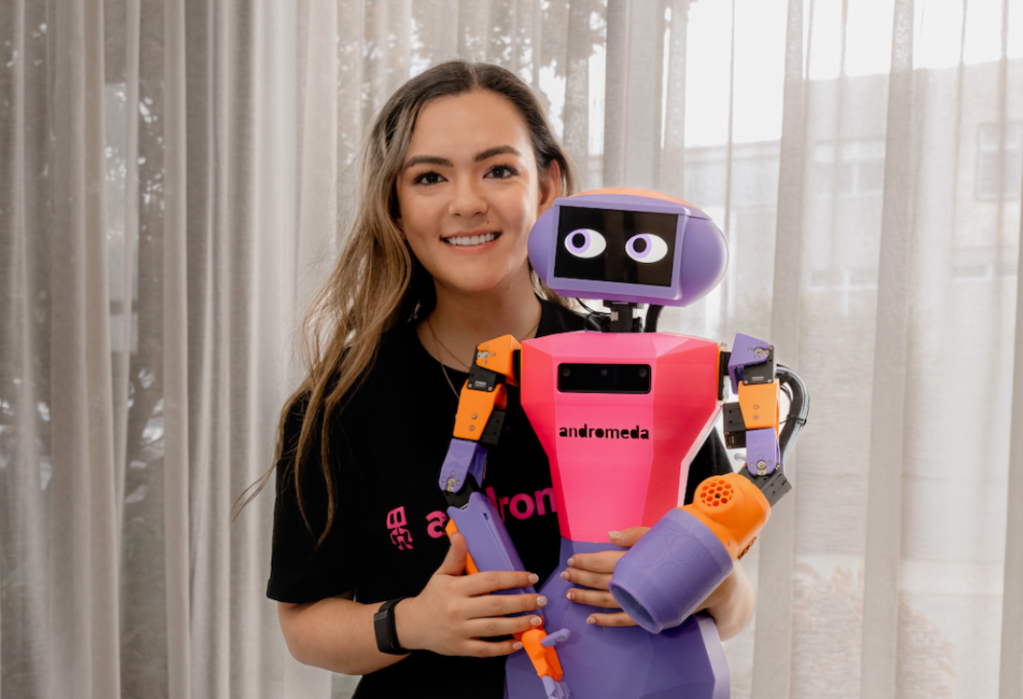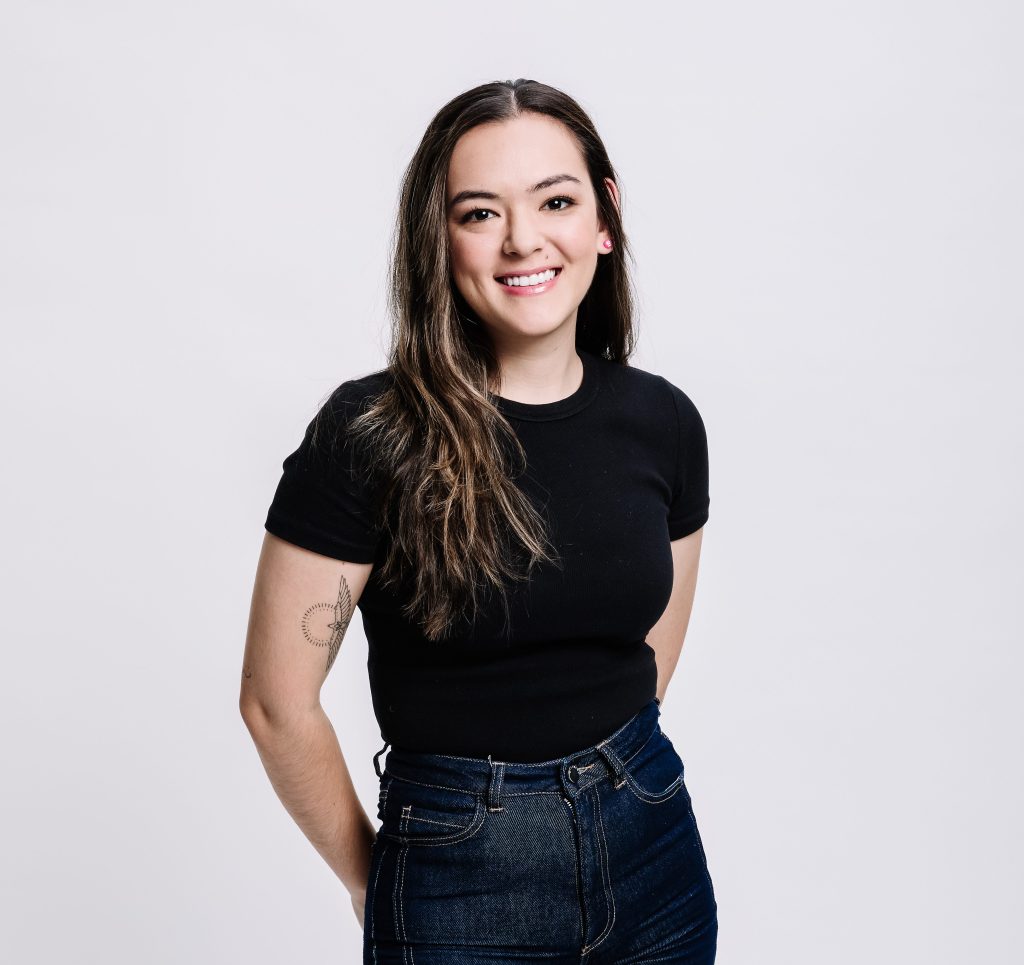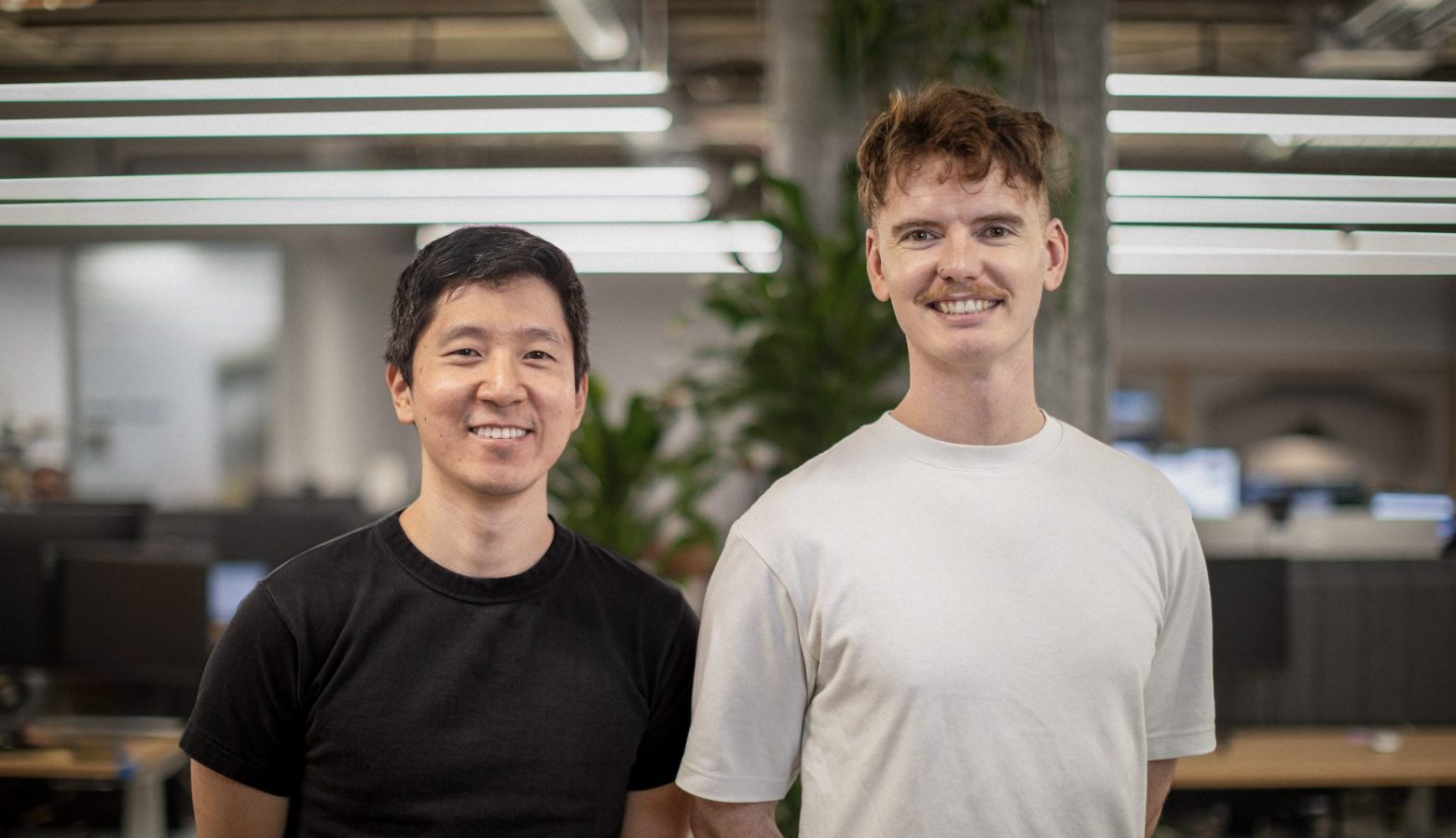Having just secured a $23 million Series A fundraise, 25-year-old Grace Brown’s humanoid, Abi, is inspired by, and will soon be designed by, Hollywood animators.

CEO Grace Brown is approaching robotics in a very different way than other tech founders. Her humanoid, Abi, both looks and is programmed distinctly. “She’s bright, she’s colourful, she’s friendly, she’s not like a Terminator, or built to feel powerful. People have a lot of trust in her,” Brown tells Forbes Australia.
The 30 Under 30 alumna founded Andromeda Robotics with Yan Chen in 2022. She was just 22 at the time. Now, with a fresh Series A fundraise of $23 million under her belt, Brown is looking to recruit highly-skilled technologists from a very different industry to push Abi forward.
“Two of our first hires in San Francisco are going to be character animators who have worked on Pixar, Disney, or DreamWorks films,” says Brown.
An animator’s skillset, she says, dovetails beautifully with what she wants Abi to embody.
“Capturing emotion is central to everything that we do when building and designing Abi. How does this make the end user feel, what emotions does this actually evoke from them?”
Not only is the University of Melbourne Mechatronics graduate hiring California-based talent, but she is also relocating to the Bay Area herself. The move will put her close to Andromeda’s newest investors and allow her to tap into the second-to-none software engineering and innovation talent in San Francisco and LA.
While her location is changing, Brown says Andromeda’s mission – and point of differentiation – will stay the same.
“Most other humanoid robotics companies are not building for trust,” says Brown. “They treat that as something that’s a fuzzy, nice-to-have feature, whereas we’ve treated the trust that people have with Abi as the core infrastructure. It’s the North Star.”
Scaling Abi up
The robots that Brown is building at Melbourne-headquartered Andromeda will eventually end up in nursing homes around the country. These ‘companion robots,’ known as Abis, have been designed to be welcomed into people’s homes.
“If you build a system and you’re going to deploy it into a physical environment, it almost doesn’t matter how technically impressive the product is,” says Brown. “The way we’ve animated Abi’s eyes, the facial expressions, the way her gestures are animated, are all emphasised to anthropomorphise an inanimate object.”
Currently, 8 Abis are manufactured each month, and demand is outstripping supply. This week’s fundraise will facilitate the construction of 100 Abi’s each month.
The A round, led by Forerunner Ventures, also includes Main Sequence Ventures, Rethink Impact, Artesian, Trampoline, Startmate, and Visible Ventures. Dominic Price, Atlassian’s former Work Futurist, participated in the raise as an angel investor. He is proud to see Andromeda go global, he says.

“Really excited to invest in an Aussie start-up, with Aussie founders and global plans, building next generation tech that will positively impact millions of lives,” says Price.
“A university project that turned into a dream and a start to serving aged care and children’s hospitals around the world. Started in Melbourne, but taking on the world.”
Brown notes that the Series A, which values her company at $100 million, was primarily led by female investors. In addition to facilitating expansion into the US, the raise also takes Brown a step closer to her bold, long-term ambitions.
“I have no doubt we’re going to be a billion-dollar company. I’m just trying to figure out how we’re going to become a trillion-dollar company.”
Grace Brown
The Melburnian’s entrepreneurial drive was sparked by her mother, a Chinese immigrant to Australia who built her own businesses. This firsthand experience of resilience and self-reliance instilled in Grace a desire to create something significant. Abi, originally a passion project, quickly evolved into a company that sits at the heart of the technological future.
“The next mass technological adoption is going to be the home companion robot,” says Brown. “Right now, many people in tech are working towards building embodied AI and general-purpose humanoid robots that can take on menial and assistive tasks, but also things like companionship and connection.”
In addition to people’s residences, Brown wants to see Abis in schools and hospitals.
“I’d say in 10 years, you’ll see more humanoid companion robots around the world than you’ll see dogs and cats.”
Look back on the week that was with hand-picked articles from Australia and around the world. Sign up to the Forbes Australia newsletter here or become a member here.
More from Forbes Australia


